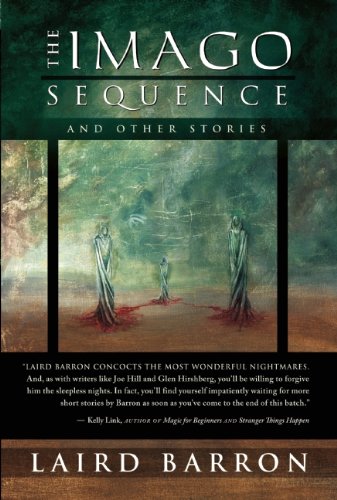 Tim and Eric’s comedy is about weapon-grade awkwardness. They’re the kings of off-kilter timing, inexplicable malapropisms, garishly slapdash special effects, and reaction shots that last two seconds too long. Their style resembles banal daytime TV fed through some sort of cosmic dislocator so that everything is 10-15% off.
Tim and Eric’s comedy is about weapon-grade awkwardness. They’re the kings of off-kilter timing, inexplicable malapropisms, garishly slapdash special effects, and reaction shots that last two seconds too long. Their style resembles banal daytime TV fed through some sort of cosmic dislocator so that everything is 10-15% off.
Although in this case, it’s more like a banal direct to video movie. The premise: the Schlaaang corporation gives Tim and Eric a billion dollars to make a movie, which they squander on diamonds, helicopter rides, and a $500,000 a week spiritual guru. When they deliver a ridiculous 3 minute film starring a Johnny Depp impersonator, an enraged Tommy Schlaaang orders them to pay back the billion dollars. Destitute, they end up hiding at a derelict mall while ducking Schlaaang’s thugs.
Tim and Eric adjust to their new home, which is filled with such oddities as a used toilet paper store, a sword salesman who earns money by not selling swords, and a man-eating wolf that stalks the food court. They make friends, and enemies, and learn an important lesson: sometimes you gotta bring knives to a gunfight.
Some scenes perfectly nail the uncomfortable Tim and Eric vibe (there’s an almost impossible to watch scene where Eric starts to loudly masturbate off-camera, and it doesn’t let us go until he reaches his climax). Other scenes drag like hell, and have little energy. There’s a scene where Tim and Eric are trying to buy the mall from a neurotic Will Ferrell, and he forces them to watch Top Gun not once but twice. It probably sounded hilarious on paper. On screen, you’re thinking “okay…feel free to go somewhere with this any time, boys.”
This movie exposes the limitations of the Tim and Eric format, which is that they have trouble sustaining interest in their schtick for long periods of time. They were at their best in Awesome Show, Great Job, where they bombarded you with sketch after sketch. While you were still recovering from a left hook, in swings the right. But the artistic strictures of film means they have to keep scenes going, and going, and going…and the cider goes flat. They rely on the unexpected, and too much of the unexpected means your tastes adjust downward like a pupil under a bright light. Their ironic kitsch starts to seem like genuine kitsch. Their awkward pauses and affectations seem like random stupidity.
It’s fun to be in Tim and Eric’s world, but honestly you don’t want to be there for long. Billion Dollar Movie is like spending 94 minutes on a roller coaster. Fun at first, but after a certain point you just want to get off.
 This short story collection demonstrates that Laird Barron is clearly a master of his art. What art he’s a master of, I’m not sure.
This short story collection demonstrates that Laird Barron is clearly a master of his art. What art he’s a master of, I’m not sure.
Some stories are like “Shiva, Open Your Eye” – short, compact blasts of ice-tipped imagery and efficient prose. Other stories, like “Procession of the Black Sloth” are longer and more languorous, and tend to develop more like vines, growing in indecisive directions and sometimes looping back on themselves. Only at the end does it become clear…sometimes.
You could name-check all day if you’re looking for comparisons. Lead-off story “Old Virginia” seems to have some King/Koontz DNA: a black-hat government spook and a research team are out in the wilds during the height of the Cold War, in possession of what they hope is a powerful psychic weapon in the body of an old woman, when an unknown person begins sabotaging the program. I liked this one, the way it spins together several ideas – the CIA’s MKULTRA program, the legendary disappearance of the Roanoke colonists, even some subtle Weird Tales pastiches – without the story collapsing into a mess.
“Procession of the Black Sloth” reminded me a lot of Dan Simmons’ “The Song of Kali”. Especially the way the specific horrific events of the story sort of merge with the nonspecific horror of being in a far off, unfamiliar place. In this case, the scares come 50% from the setting itself. Right on the heels of that is “Bulldozer”, which seems a bit like a Beat generation horror story – specifically the southern-influenced kind of Beat of Jack Kerouac and William S Burroughs.
The volume’s powerful grace note is “The Imago Sequence”, a kind of multiply-layered tale (like House of Leaves, but less obvious in what it’s trying to do) involving a series of disturbing photographs. A great main character in this one, as well as a strong and compelling atmosphere. The story’s paradoxically languid but paranoid – like a drugged man groping in the dark, before the thing in the dark finds him first.
Not everything here is pulled off perfectly – “Old Virginia” is queered at the end by some goofy Bond-villain-esque monologues, while “Shiva, Open Your Eye” probably could have benefited from some more subtlety. But overall, the Imago Sequence is an impressive, diverse, and memorable set of stories. There’s lots of stuff here for you, no matter who you are.
My digital copy of this somehow has an error that credits it to “Laird Barron” and also “Laird Barron”. Maybe that works, in a way. Maybe he’s multiple people. But no matter which Laird Barron is behind the word processor, The Imago Sequence carries a high recommendation.
 This is the third volume of Kurodahan’s “Kaiki” series – eerie supernatural stories from Japan, translated into English for the first time. The first one dealt with old Edo, the second dealt with the countryside, this one deals with city life.
This is the third volume of Kurodahan’s “Kaiki” series – eerie supernatural stories from Japan, translated into English for the first time. The first one dealt with old Edo, the second dealt with the countryside, this one deals with city life.
City-themed horror tales will probably always be with us. Humans evolved in troupes of around 50, and many of us still feel a fundamental “wrongness” about cities that no amount of indoor plumbing will shake. Some people feel that they’re not fitting in, that they’re alienated and alone. Others feel that they’re fitting in too well – losing their identity, and becoming another bee in the hive. Uncanny Tales 3 has takes on both these themes, and many more.
There’s a lot of good things here, but three stories stand out as more than good. The first is “The Face”, by Tanizaki’s Jun’ichiro. A story within a story, it’s deep and metafictional, but also disturbing and grotesque. A bizarre art film is being released, but the lead actress cannot recall having starred in it. It features her opposite an extremely deformed man with a cancerous second face, a face that couldn’t possibly have been added in with special effects. The story is intense and pacey, and although it was written in 1918, doesn’t seem at all dated or old in its treatment of the new technology of film and permanent recordings, and what it could mean if they don’t seem to match up to reality.
“Doctor Mera’s Mysterious Crimes” finds Edogawa Ranpo behind the helm of a powerful detective/urban horror hybrid story about a doctor who kills without leaving a trace of his presence behind. Virtually nobody writes psychological scares, like Ranpo, and this is him at his best, or close to it. The story grows ridiculous, but Ranpo’s mastery of mood and tension makes it a flavour of ridiculous we can swallow.
Yamakawa Masao’s “The Talisman” comes from 1960, as the Golden Sixties were just beginning. This story tackles the darker side of that period, namely the idea that the rising yen wasn’t lifting Japan’s people along with it, and that Japan had little use for human beings beyond their services to business and industry. The story involves a man returning home, and discovering that another man is already there, and is living his life. The story contains some more complications beyond that (some of them necessary, some of them not), but the crux of the tale is disturbing: is it possible for a man to be completely interchangeable, so that he can be replaced by another without anyone noticing the difference?
Higashi Masao provides an introduction, explaining the role and importance of “Kaiki” tales, as well as what makes Japan’s take on creepy stories unique. Basically, being Japanese is to have unease in your bones from cradle to grave – the island chain is under permanent threat from fire, from water, from earthquakes, et cetera. It might be easy to feel that this lifestyle is transient and short-lived, and maybe so, but the Japanese experience can be written down in books, which last forever. If we want them to.
 Tim and Eric’s comedy is about weapon-grade awkwardness. They’re the kings of off-kilter timing, inexplicable malapropisms, garishly slapdash special effects, and reaction shots that last two seconds too long. Their style resembles banal daytime TV fed through some sort of cosmic dislocator so that everything is 10-15% off.
Tim and Eric’s comedy is about weapon-grade awkwardness. They’re the kings of off-kilter timing, inexplicable malapropisms, garishly slapdash special effects, and reaction shots that last two seconds too long. Their style resembles banal daytime TV fed through some sort of cosmic dislocator so that everything is 10-15% off. 

